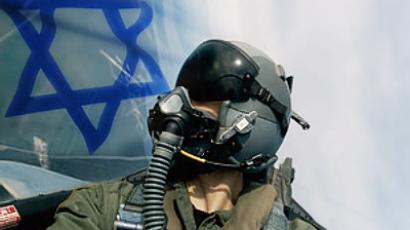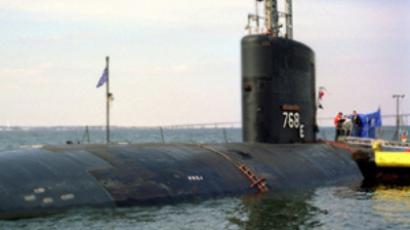Passenger plane crashes in Iran, all aboard dead
An Iranian Caspian Airlines passenger plane has crashed in northwest Iran, with all of the 168 people aboard, 153 passengers and 15 crew members, presumed dead.
The plane, a Russian-made Tupolev TU-154, hit the ground near the village of Jannat Abad, outside the city of Qazvin, on its way from Tehran to the Armenian capital Yerevan.
The Director of Regional Emergency Services, Hossein Bahzadpour, told Iranian IRNA news agency that the plane has been completely destroyed. Its wreckage was in flames, because the crash happened only 16 minutes after the plane took off from Tehran, and its fuel tanks were full. The accident took place only 75 miles away from the airport.
“Our crews are searching for passengers’ remains as well as information to help us identify the bodies. We’re also searching for the pieces of the plane to be handed over to the engineers of Iranian aviation to find out the exact cause of the crash,” said Qazvin Emergency Services Director Hossein Bahzadpour.
According to preliminary data, the plane crashed after one of its engines caught fire.
The complete list of passengers has not been made public yet, but it is already known that most of the passengers aboard the Tupolev were Iranian citizens.
There were no Russian citizens on board the plane, Armenia’s Civil Aviation Department representative told Interfax news agency.Meanwhile, the Georgian Foreign Ministry’s press service informed Russian RIA Novosty news agency that two Georgian citizens, the wife of the head of the Georgian mission in Iran and the financial manager of the Georgian embassy in the country, died in the air crash.
Novosti-Armenia news agency reports, quoting aviation official Arsen Pogosyan, that according to preliminary information, five Armenian citizens died in the plane crash.
The official also gave the names of the Georgian citizens who were killed: Natella Nikonova and Givi Chkodua. The rest of the people onboard, according to the official, were Iranian citizens.
The plane was also carrying ten members of the Iranian national junior judo team.
“We have offered medical and psychological help to 25 relatives so far. Our headquarters have everything necessary to offer professional help. Doctors and psychologists are working non-stop. Yerevan has sent three emergency units, but no one has been hospitalized so far,” informed psychologist Lilit Kazaryan who is currently working at Yerevan’s airport.
This is the first plane crash in Iran for three years. Iran’s flight operating safety is notoriously bad. Some people believe international sanctions are partly to blame. Trade embargoes placed on Iran by Western nations have forced the country to rely on an aging fleet of aircraft, and Iran has troubles buying spare parts.
“It is widely believed in Tehran that these sanctions do place restrictions on how an aircraft could be updated and modified, but they do fly internationally out of Iran and one would expect that they could possibly get parts there,” says Nick Davies-Jones, a freelance journalist working in Iran.
Russia’s President Dmitry Medvedev has expressed his condolences to Iran’s leader Mahmoud Ahmadinejad and the President of Armenia, Serzh Sargsyan.
TU-154M “Workhorse”
TU-154 is a Soviet medium-range jet designed in the 1960s. Since then, more than 900 aircraft of that type have been produced.
Its serial production stopped three years ago, and the existing planes are expected to remain in operation until 2016.
Iran is the second-largest operator of the TU-154 after Russia.
The plane that crashed was built in 1987. Russian officials denied the model is unreliable.
Since its first flight, more than 60 of the planes have been lost in crashes and other serious incidents.














